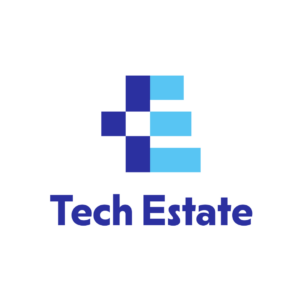
Source: Ejike Kanife/ Technext
Two of Nigeria’s foremost ride-hailing companies, Uber and Bolt have more or less rejected calls by drivers for them to slash their commissions to 10%. This is coming in the wake of yet another increase in the price of premium motor spirit (pms).
The latest increase ranging from as high as N580 in Lagos to as high as N620 in Abuja has thrown drivers on both platforms into a state of abject dejection, with many of them considering the option of abandoning the business altogether.
Technext reached out to both app companies, requesting to know their plans for drivers and the e-hailing space given the latest development. This inquiry comprised particular questions about the slashing of commission to a flat rate of 10%. In their separate responses, both companies totally avoided the question of a 10% commission.
Responding to the query, Bolt Country Manager, Yahaya Mohammed, while avoiding the 10% commission question, said the company recognises the significant economic challenges posed by rising fuel prices and empathises deeply with both drivers and riders.
In its own response, a Bolt spokesperson, while also avoiding the 10% commission question, recalled its previous efforts at improving drivers’ earnings including its reduced commission of 20% and its increase in fares following the first fuel hike back in June. Reciting these measures, the spokesperson noted the following:
Updating fares on the 3rd and 9th of June on the app to reflect existing economic conditions; Lowering the service fee from 25% to 20% to help enable better-earning opportunities for drivers; We have also recently introduced a new feature that enables drivers to see how much they will make at the start of each trip, as well as another which gives the driver visibility on the destination, allowing them to choose the trips they want to take.
The spokesperson also told Technext that as a global business that operates locally, Bolt is constantly monitoring local dynamics to see what changes can be implemented and when.

Making sense of 10% commission for Uber and Bolt amid the current fuel hike
E-hailing drivers still groaning under the weight of a first fuel price increase in May, were hit with yet another bad news as fuel prices were further increased, plunging drivers even further into penury. One of the drivers told Technext that he has abandoned his vehicle while focusing on his other businesses.
His sentiment was shared by other stakeholders including the General Secretary of the Amalgamated Union of App-based Transport Workers of Nigeria (AUATWON), Ayoade Ibrahim who told us that:
If the fuel price jumps up to N560/litre, many app drivers would park their cars because even now app drivers have not been getting good money. We just managed to survive from hand to mouth as app companies have refused to increase the fares to 200%Ibrahim Ayoade
Following the initial 200% fuel price increase, drivers on both platforms demanded a commensurate increase in fares. While Uber and Bolt have both increased fare prices, as much as 15% for Bolt and 25% for Uber, it was still a far cry from the 200% increase demanded by the drivers. The drivers eventually embarked on a 10-day strike to drive home their demand.
The app companies argued that fuel wasn’t the only factor that determines fare prices. But more importantly, a 200% increase was quite unreasonable, given that these fares would be paid by the riders who also were suffering the same economic hardship. Ultimately, a 200% increase would lead to a very sharp decline in demand and endanger the ride-hailing industry at large.
But one demand that isn’t unreasonable, given the present circumstance, is the demand for app companies to slash their commissions to a flat rate of 10%. Because given the realities on the ground, and as captured by the drivers, the new fuel price increase is already forcing drivers to give up on the venture. If the business of e-hailing is no longer attractive, the industry would start experiencing a slow and steady demise.
Bolt charges a 25% commission while Uber charges 20%. Accepting a slash in commission to 10% or even 15% at this point might just be the balm that heals the festering wound and stems the massive exodus of drivers (and maybe riders) currently being witnessed in the e-hailing sector.
While both Uber and Bolt have emphasised time and again their commitment to their drivers, always stressing that the drivers are at the heart of what they do, it becomes difficult to tie their professed commitment to the reality of refusing their demand for a slash in commission. This is even more worrying considering their absolute reluctance to address the matter.
Both companies have expressed their willingness to review and analyse the situation to ensure drivers on their platforms are earning good pay. According to Bolt’s Country Manager, Yahaya Mohammed: “We remain committed to conducting thorough reviews to ensure our drivers receive the best earnings on our platform, maintain our position as the most affordable and preferred choice for riders, and ensure the long-term sustainability of our business.”
Given these lofty assurances, one won’t be remiss to think that perhaps, the reviews by both companies ought to include considerations for accepting a slash in commission. Because right now, it might be the only way drivers receive the best earning on the Uber and Bolt platforms.
Source: Ejike Kanife/ Technext












